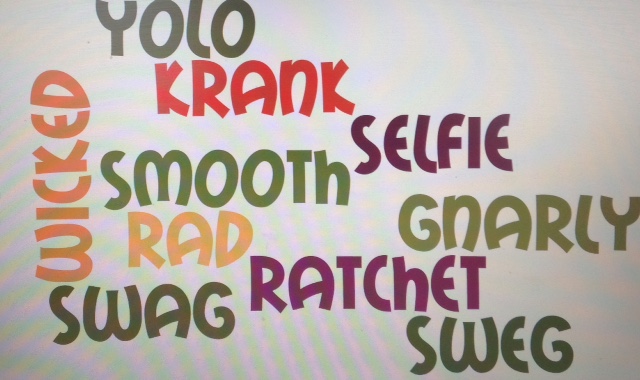-
NEUIGKEITEN
- EXPLORE
-
Blogs
British vs American Early 2000s Slang
British and American youth slang in the early 2000s shared energy, but many key expressions were unique to each side of the Atlantic. Comparing them reveals how culture, media, and local flavor shaped youth language. You might see examples or history in posts exploring 2000s vocabulary (such as one on https://blog.appewa.com/2000s-slang/), but here we’ll break down distinctive British vs American slang in that era, how they spread, and which ones survive today.
Influences on British and American Slang in the Early 2000s
Media played a huge role. In America, youth slang was propelled by hip-hop, MTV, teen television, and online forums. British slang drew from grime, garage, UK hip-hop, local dialects, and British TV shows. Because youth in each country consumed much local media, many slang terms remained regionally rooted—even as globalization spread some across borders.
Social contact (school, local scenes) also matters. British slang often emerged in narrower subcultures—neighborhoods, club scenes, UK urban centers—while American slang had a wider platform via Hollywood and national radio.
Core Differences in Examples
British Slang Examples
-
“Cheeky”: Something done with a playful boldness—“Let’s grab a cheeky pint” means “let’s sneak in a drink.”
-
“Mint” (or “minted”) : Very good, excellent—“That album is mint.”
-
“Knackered”: Exhausted—“I’m properly knackered.”
-
“Dodgy”: Suspicious or subpar—“That shop seems dodgy.”
-
“Gutted”: Deep disappointment—“I was gutted when I missed the gig.”
-
“Banter”: Playful teasing or joking conversation—“Good banter last night.”
-
“Taking the piss”: Making fun of or mocking—“Are you taking the piss?”
-
“Mate”: Friend / buddy—“Alright, mate?”
-
“Sorted”: Sorted out, taken care of—“We’re all sorted now.”
-
“Chuffed”: Proud or pleased—“I’m chuffed with how it went.”
American Slang Examples

-
“Dope”: Excellent, cool—“That track is dope.”
-
“Sick”: In a positive sense—“That move was sick.”
-
“Sweet”: Cool, nice—“Just got tickets. Sweet.”
-
“Chill”: Relaxed or to relax—“We should chill this weekend.”
-
“Cool beans”: Affirmative slang—“Cool beans, let’s go.”
-
“Props”: Respect or credit—“Give him props for that idea.”
-
“Crushin’”: Having a crush—“I’m crushin’ hard.”
-
“Bomb”: Very good—“The party was bomb.”
-
“Legit”: Genuine or excellent—“That band is legit.”
-
“Hook up”: To connect or meet—“Let’s hook up later.”
Slang That Traveled & Those That Didn’t
Some terms crossed borders—“dope,” “sick,” and “cool” were widely understood in British youth circles. On the flip side, many British terms didn’t always make it into American vernacular (or had different meaning). “Cheeky,” “banter,” or “chuffed” still feel characteristically British when used outside the UK.
Conversely, American media pushed some American slang into British youth lexicon—but often with nuance or resistance. For instance, “props” or “dope” might be adopted among subcultures but might not carry the same social weight.
How These Slang Differences Reflect Culture
Expressive vs Subtle
American slang often leans bold and assertive. “That’s dope” or “bomb” makes a strong statement. British slang frequently embeds humor, understatement, and irony. A British teen might say, “That’s a bit dodgy,” where an American might say, “That’s hella sketchy.”
Emotional Tone

British slang can carry self-deprecation or dry humor (“I’m knackered,” “gutted”) whereas American slang often swings toward hyperbole or excitement (“so lit,” “bomb”).
Relationship with Media
American pop culture had a massive export effect. Many American terms reached the UK through films, music, TV. But British slang had to contend with local media barriers, so many remained local or niche.
Examples of Slang in Real Context
-
British teen texting a friend:
“I’m knackered after school. Want to grab a cheeky coffee?” -
American student texting:
“Just aced my test. That’s dope. You up for hanging later?” -
British group chat:
“Good banter tonight. Totally chuffed we met.” -
American group chat:
“That concert was sick. Props to the band.”
Those exchanges highlight how local flavor affects phrasing and social tone.
Which Slang Survived to Today?
Some expressions remain part of the lexicon. In Britain, “banter,” “cheeky,” and “gutted” are still common. In America, “dope,” “sick” (in the positive sense), “cool beans,” and “chill” continue. Others fade out or shift meaning.
Also, new slang emerges, blending influences. UK youth sometimes blend American words with local twist—“That’s dope, mate” or “That’s sick, proper.” The cross-pollination of internet culture means future slang is more global, but the roots are still noticeable if you listen.
Tips for Adopting or Recognizing Slang Across the Pond
-
Listen to local media—music, TV shows, YouTube—from the region you’re curious about.
-
Use caution: some slang has negative or different connotations regionally.
-
Observe tone and context—they teach more than literal meaning.
-
Ask friends what slang means rather than assuming.
-
Respect usage: if a phrase is local and feels off, using it too strongly or incorrectly can feel performative.
Comparing early 2000s British and American slang shows how language reflects identity, culture, and social priorities. While global media has blurred some distinctions, the local flavors of “cheeky pint” or “that’s dope” still evoke their roots—and listening closely, you’ll catch those regional beats in conversation.




